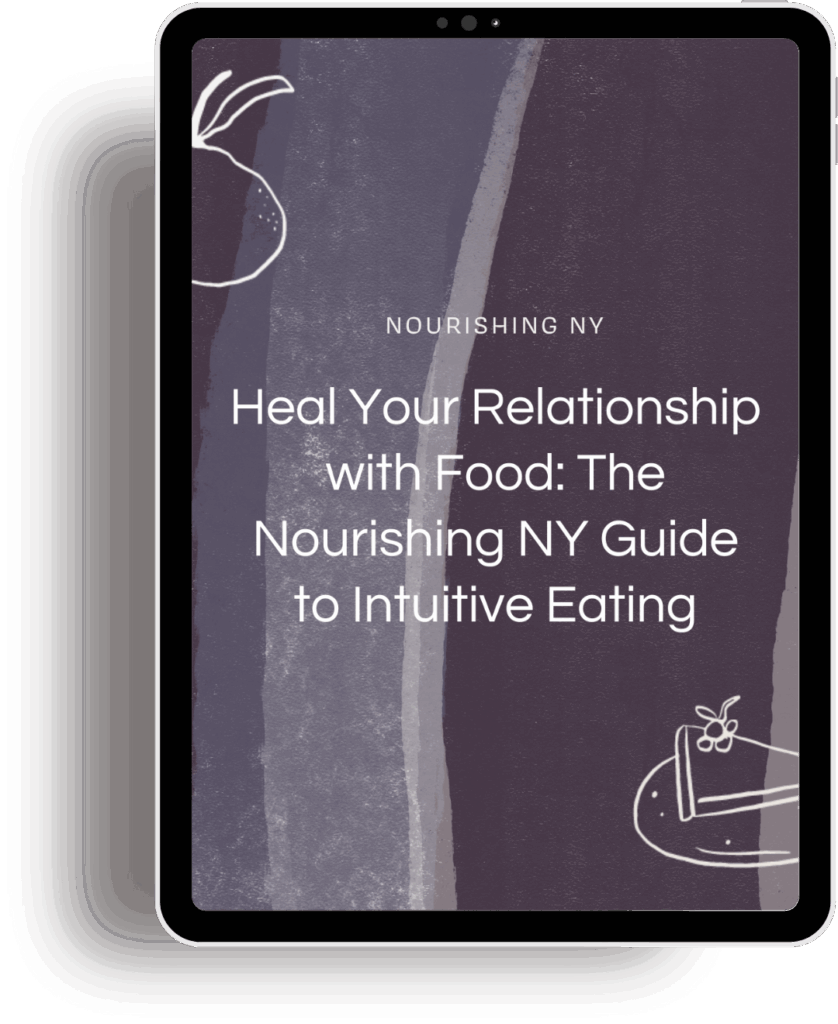It’s normal to eat large quantities of food from time to time, but when it causes you negative feelings of shame and guilt, or uncomfortable feelings of extreme fullness, it can be very problematic for your mental and physical health.
It is important to first identify why you are bingeing. There are many reasons that someone would binge and in most cases, it’s because he or she is either not eating enough throughout the day, or not eating the right combinations of food.
Have you ever gone out to lunch with your friends, eaten your meal, looked down at your empty plate, and thought to yourself, “wow, I barely remember eating that”?
I recently was with a friend who had this experience, and she asked me why she can’t help but eat so quickly and “black out” when eating. I asked her, “did you eat breakfast?”. “No”, she responded.
That’s why. It had been 7 hours since she woke up, and she hadn’t eaten yet. She was just …. hungry. There was nothing “wrong” with her. She just hadn’t eaten in a while.
The most common cause of bingeing is restriction. In fact, it’s actually a sign of health in that it shows us your body knows how to fight against starvation. When our bodies don’t receive energy after sending us the signs asking for it, they react by sending us into overdrive. Specifically, when we’re hungry, our bodies send out the hormone Ghrelin, which plays a key role in regulating our food intake (Mawer, 2016).
If you’re dieting, you’re messing with your body’s innate knowledge of when to start and stop eating. The confusion this causes our bodies to send us into autopilot, and oftentimes resulting in binge episodes.
So, what can you do? Here are 3 tips we suggest to aid you in stopping binge eating episodes.
3 Steps to Stop Binge Eating
-
You can stop binge episodes by first stopping your diet and/or any form of restriction. You need to nourish your body on a consistent basis, and include all three macronutrients at each meal (carbs, fats and proteins). You need to teach your body how to trust that you will feed it again. This takes time, and it can be uncomfortable, but if restriction is the root of your binge eating, it’s an essential part of the process.
-
It’s also advisable to eat 2-3 balanced snacks during the day. Again, feeding your body consistently builds trust within, which will decrease incidences of bingeing.
Snacks should consist of one form of carbohydrate and either a fat or protein source. Examples of this include carrots (carbohydrate) and hummus (protein), or pretzels (carbohydrate) and cheese (fat). -
Find support. It’s imperative to have a supportive network when you’re working to heal your relationship with food. Find a non-diet dietitian and a therapist you can talk to about your struggles with binge eating. Dietitians with experience working with binge eating or disordered eating can help you create a plan of action for your meals that fit within your lifestyle and food preferences. A therapist can help you identify emotional triggers, and work through body image-related issues.
Looking for help to stop binge eating?
If you’d like to start finding peace with your body and food, reach out to us – we accept most major insurance carriers and we want to help you find peace.



